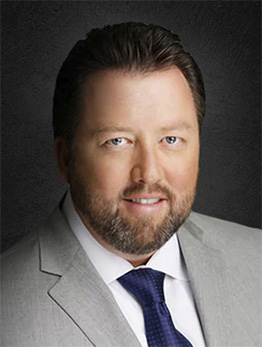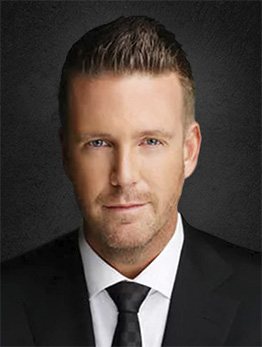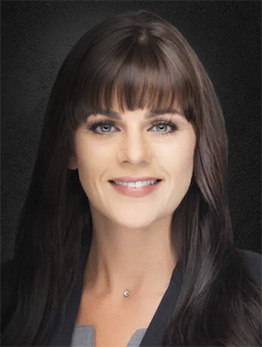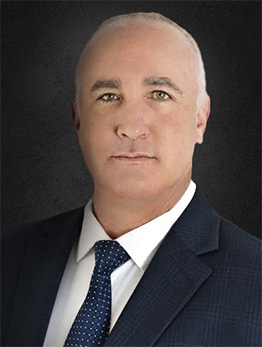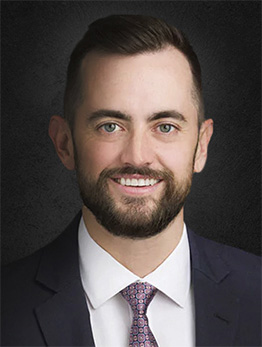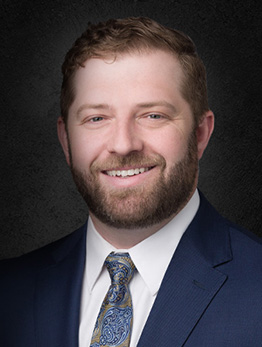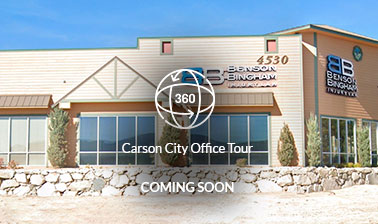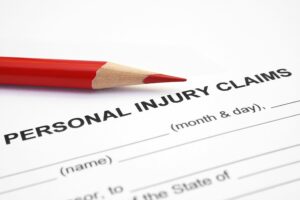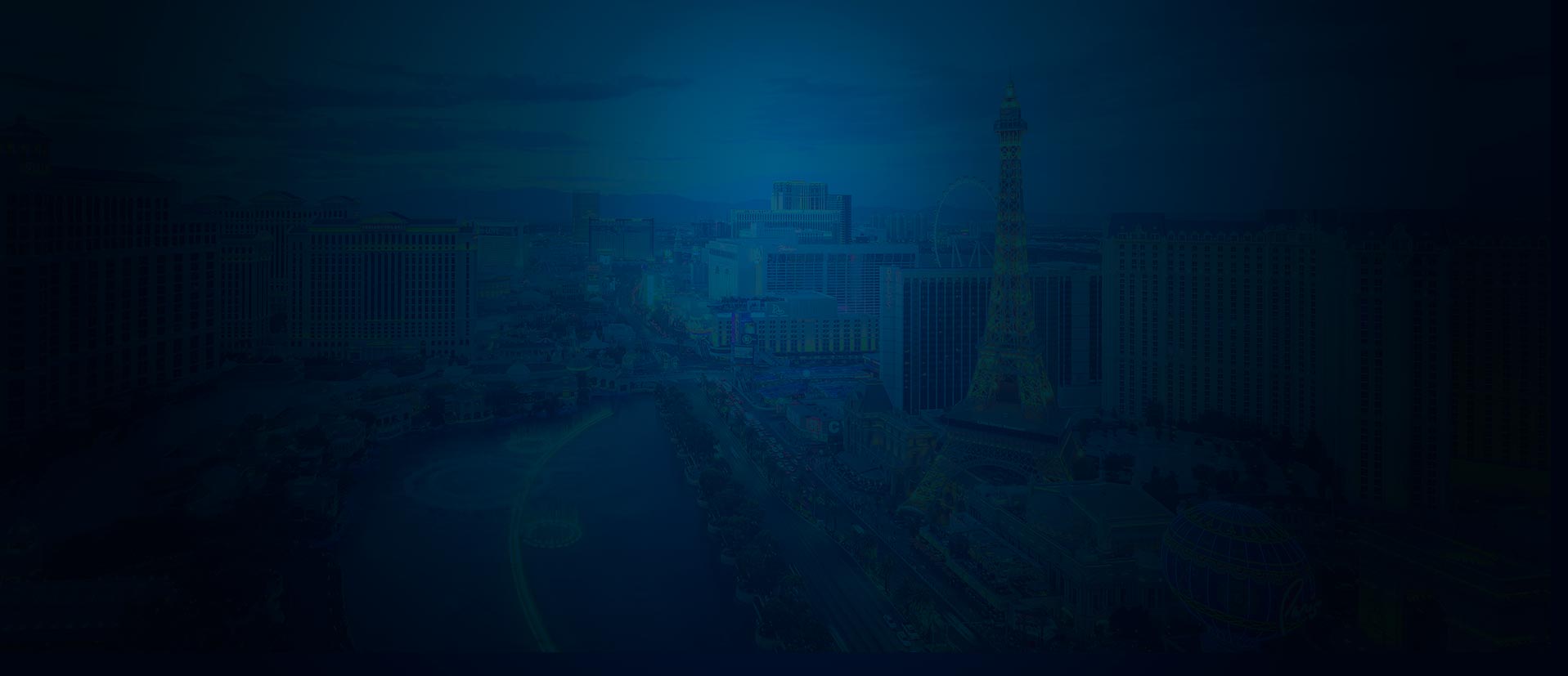


-

$500+ Million Settled For Clients
-

Thousands of 5-Star Ratings On Google, Martindale & Avvo
-

Over 20+ Years Of Personal Injury Experience
-

5 Convenient Locations Across Nevada

Las Vegas Personal Injury Lawyers
Get The Best Reviewed Accident Attorneys In Nevada
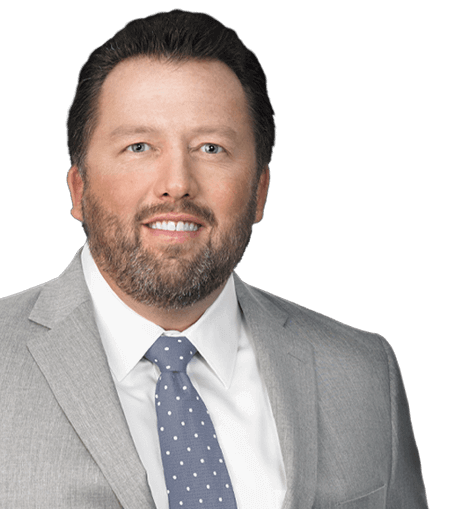

Joseph L. Benson II, Esq.
A drunk driver critically injured my brother in high school, and that experience helped me want to help others. The law is unique and often not clear cut–many times the facts fall in the gray area—so it takes a creative mind to find solutions and a liability hook to make a case valuable. Turning a case that looked like a loser into a winning one is the best.
Learn More About Joseph L. Benson II, Esq.
Ben J. Bingham, Esq.
My journey in the practice of law is a story of a childhood dream realized through dedication, hard work, and an unwavering belief in the power of justice. It’s a narrative about turning aspirations into achievements and highlights the impact one can have when they’re driven by passion and guided by integrity.
Learn More About Ben J. Bingham, Esq.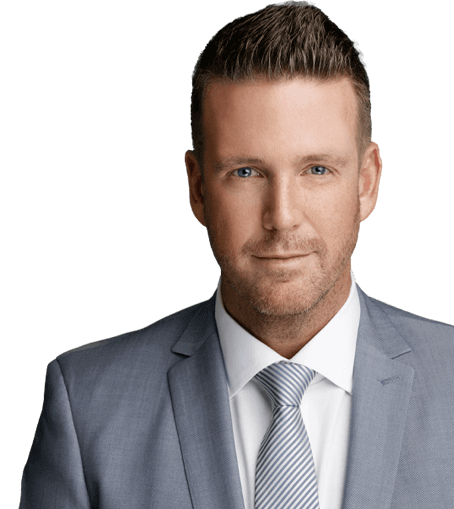
Over 20 Years Of Experience Helping Victims In Vegas Recover Damages
Let Our Las Vegas Injury Team Serve You
Fighting For Your Rights From Start to Finish
Welcome to Benson & Bingham Personal Injury Law Firm, where justice meets compassion. At Benson & Bingham, we understand that accidents can happen when you least expect them, leaving you physically, emotionally, and financially vulnerable. That’s why we are dedicated to providing unwavering support and legal expertise to those who have suffered injuries due to the negligence of others.
Our firm is committed to advocating for the rights of individuals who have been harmed in accidents such as car crashes, slip and falls, workplace injuries, medical malpractice, and more. With a team of seasoned attorneys, Benson & Bingham Personal Injury Law Firm has built a reputation for tenaciously pursuing justice on behalf of our clients.
Read More About What We DoTypes of Litigation We Handle
Our Las Vegas PI Attorneys Handle Many Types Of Cases:
Car Accidents
We strive to ensure our clients receive the compensation they deserve for medical expenses, property damage, lost wages, and pain and suffering resulting from car collisions.
Truck Accidents
Experienced in handling complex cases involving truck accidents, focusing on obtaining fair compensation for injuries and losses sustained in collisions with large commercial vehicles.
Bus Accidents
Offering legal expertise for individuals involved in bus accidents, ensuring they receive proper compensation for injuries sustained due to public or private bus operator negligence.
Motorcycle Accidents
Specializing in cases where motorcyclists have been injured due to the negligence of others, ensuring just compensation for medical bills, lost wages, and other damages.
Worker’s Compensation
Assisting injured employees in navigating worker’s compensation claims to secure financial support and medical care benefits for workplace injuries.
Pedestrian Accidents
Representing pedestrians injured in traffic-related incidents, advocating for their rights to compensation for medical expenses, pain, suffering, and other damages.
Bicycle Accidents
Dedicated to protecting the rights of bicyclists injured on the road, pursuing claims against responsible parties for medical treatment, rehabilitation costs, and other related expenses.
Wrongful Death
Compassionately representing families in wrongful death cases, helping them seek justice and financial support for the untimely loss of a loved one due to negligence or misconduct.
Defective Products
Providing legal assistance for individuals harmed by defective or unsafe products, seeking compensation for injuries, medical costs, and other related losses.
Slip & Fall Injury
Expertly handling slip and fall injury claims, ensuring clients receive fair compensation for injuries suffered on unsafe premises, including medical costs and lost wages.
Hotel & Casino Injury
Specializing in cases of injuries sustained in hotels and casinos, advocating for victims to receive just compensation for accidents due to negligence or unsafe conditions.
Dog Bites & Animal Attacks
Assisting victims of dog bites and animal attacks, working to secure compensation for medical treatment, emotional trauma, and other impacts of such incidents.

Why Choose Benson & Bingham Accident Injury Lawyers, LLC Law Firm?
We Understand What Makes Nevada Law Tick.
Over $500 Million Settled For Clients
At Benson & Bingham Accident Injury Lawyers, LLC, our track record says it all. We’re proud to have settled over $500 million for our clients, showcasing our commitment to achieving the best outcomes. We understand the financial and emotional toll of personal injuries on individuals and families. Our mission is clear: provide top-notch legal support and secure substantial settlements for those in need. With a proven history of success, you can trust us to fight for your rights and deliver the results you deserve, ensuring a brighter future after your injury.
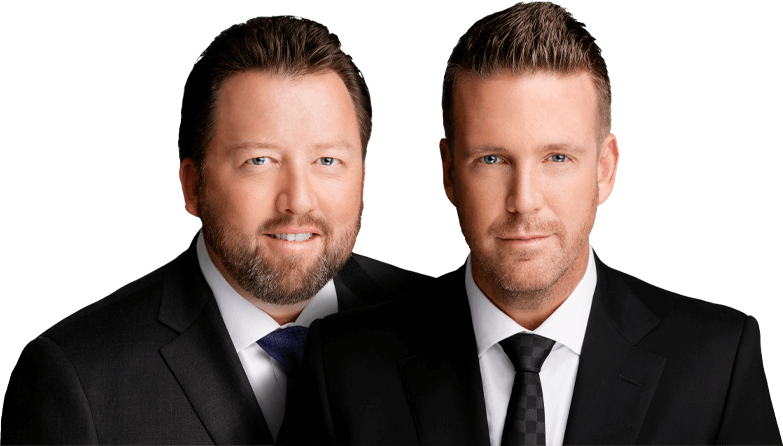

Direct Access to Our Lawyers: No Middleman, No Delays
Experience direct access to our lawyers, no middleman, and no delays. Get personalized legal support quickly and efficiently, tailored to your needs.
Experience Our Unique Personal Approach to Personal Injury Law.
Experience our unique personal approach to personal injury law at Benson & Bingham. We offer tailored solutions for your unique case.
Judgments Earned by Benson & Bingham Accident Injury Lawyers, LLC in Past Cases
↓
The Recipe is Simple. Hard Work Delivers Outstanding Results
$500 Million Total Recovered for Motorists Wrongfully Harmed
$14.1 Million Bicycle Accident vs Commercial Vehicle
$4.25 Million Motorcycle Accident
$2.9 Million Wrongful Death Accident
$2.5 Million Car Accident
$2.65 Million Semi / Commercial Collision
$2.25 Million Garbage Truck Crash
Meet Our Las Vegas Injury Accident Litigators
Best-Reviewed PI Firm In Las Vegas
We win or you don’t pay! Hundreds of Five Star Reviews.
Our staff of attorneys, paralegals and team members is unparalleled in the State of Nevada.
Client service is paramount at Benson & Bingham Accident Injury Lawyers, LLC, and we maintain this practice from start to finish.
We survey clients after each case in order to continually improve our business.
I suggest using Benson & Bingham if you’re in need of an injury accident attorney! They have an amazing staff and made the entire process easy and stress free handling my case with compassion and a remedy of great efficacy!
Brandy Elliott ★★★★★
I picked this place and I’m so glad that I did. Ida was very helpful and professional. If I had questions they were answered. I would definitely use them again in the future and I would definitely recommend them to anyone. Thank you for your service I appreciate it.
Charissa Vanblerkom ★★★★★
What I love about Benson & Bingham, especially from my attorney, Lina, I felt informed and cared for my health. She made sure I was ok at all times through my injury. I hate I had the accident, but it was comforting to know I was well taken care of.
Sandra Burke ★★★★★




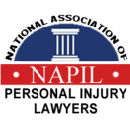























Client Testimonial Stories
USAF Airman Phillip Sisneros
“I’d Do Anything For Joe”

I was in a coma for 3 days. 11 months in rehab. The medical bills were very expensive, thanks to Benson & Bingham I got my compensation.
At Benson & Bingham Injury Lawyers, we treat each case as if it is our only case. Our experienced attorneys understand the complexity of personal injury law and will fight aggressively to get you the compensation you deserve.
Call or Text The Law Offices Of Benson & Bingham For A Free Case Evaluation
Personal Injury Questions You May Have
How Much is My Injury Claim Worth?
After suffering harm in Las Vegas, injured accident victims often want to know how much their claim is worth. There are many factors that can affect the amount of your overall personal injury claim. Some of those factors include the limits on the liable parties’ insurance policies, the type of accident, and the severity of the injuries suffered.
At Benson & Bingham Accident Injury Lawyers, LLC, our personal injury lawyers in Las Vegas understand the factors that can affect your claim. That is why we work quickly and efficiently to gather evidence, located all liable parties, and begin building your case. We work with your medical team and experts to truly understand your injuries and how they may affect your overall quality of life and your future. We then use this knowledge to fight for maximum compensation.
Types of Damages You Can Recover in a Trial or Lawsuit?
When you choose us to represent you after an injury accident, you can rest assured knowing you have an experienced team of litigators on your side. We know Nevada personal injury laws inside and out and it shows.
Our Las Vegas personal injury lawyers use this knowledge to seek a variety of damages after an accident, including:
- Medical expenses both past and future
- Rehabilitation costs
- Long-term care
- Pain and suffering
- Lost wages
- Loss of future earnings
- Punitive damages
- Emotional distress
- Property damage
We will investigate the incident carefully to identify all liable parties in order to maximize your compensation after an injury accident in Las Vegas. We know that no amount of compensation could ever undo the harm you suffered, but we can help take the financial burdens off of you while you focus on your recovery.
How Long Do I Have to File a Claim or Lawsuit in Las Vegas, Nevada?
In Nevada, injured accident victims have a specific amount of time to file a personal injury lawsuit. The amount of time you have depends largely on the type of accident you were involved in. In general, accident survivors have two years from the date of injury to file a personal injury lawsuit. Injured patients have three years from the date of the injury to file a medical malpractice claim. However, there are exceptions to this rule. If your accident involved a government entity, you may have even less time than you think.
Do not delay! Injured accident victims in Las Vegas are encouraged to call a personal injury attorney as soon as possible after their accident. Even though you may have two years to file your claim, valuable evidence is lost or destroyed quickly. This can jeopardize your chances of successfully winning your case and the compensation you deserve.
What Steps Should I Take After Suffering Damages in Las Vegas?
After an significant incident which negatively impacts your health, livelihood and general well being, you likely spent some time in the emergency room or hospital near the site where it happened. Perhaps you already went through rehab or therapy and are still dealing with chronic or long-term injuries. Even time has passed since your accident, there are steps you can still take to protect your personal injury claim.
- Follow all doctor’s orders and treatment plan precisely
- Fill medications promptly
- Attend all appointments and therapy sessions
- Avoid social media
- Keep good receipts and records
- Write down an account of the events in your own words
- Gather any evidence you can
- Do not get your car or vehicle repaired
- Avoid speak to insurers and do not give a recorded statement
- Contact an experienced Las Vegas personal injury lawyer
How Much Do Plaintiff’s Lawyers Charge?
At Benson & Bingham Accident Injury Lawyers, LLC, our personal injury lawyers in Las Vegas work on a contingency basis. This meant that our clients do not pay us anything unless we collect money for them. That’s right! Why do we do this? Because we believe that everyone deserves justice, not just those that can pay for it.
When a client hires us, they receive the experience and maximum legal power necessary to get the highest possible settlement and or verdict. We can maximize your award while you focus on your recovery. It is that simple. Let us take your case and the financial burdens off of you during this time.
What Is The Role Of Your Attorney When Negligence is Being Determined?
Insurance companies know that after an injury accident in Las Vegas, you need money fast. They use this to their advantage to pay you as little as possible. When you hire a personal injury attorney, you send a clear message to insurance companies that you mean business. With an attorney on your side, insurance companies know that they will not be able to lowball you or trick you into signing an inadequate settlement.
Yet personal injury attorneys in Las Vegas do more than just negotiate with insurance companies. They also actively investigate the accident and explore all angles. This enables them to find other liable parties that could share some of the blame, such as negligent bar owners, government entities, or product manufacturers. This significantly impacts the amount of money you can obtain.
What To Look For When Hiring The Absolute Best Law Firm In Vegas?
When searching for a personal injury lawyer in Las Vegas, prioritize finding someone with a proven track record in personal injury law, like Benson & Bingham Accident Injury Lawyers, who are well-versed in Nevada’s legal intricacies. A successful history of favorable settlements and verdicts, positive client testimonials, clear and prompt communication, and personalized attention to your case is essential. Additionally, ensure the firm has the necessary resources to support your case, operates on a contingency fee basis (no win, no fee), and offers a free initial consultation to assess compatibility without commitment. These criteria are crucial for choosing a lawyer capable of effectively advocating for your rights and securing the compensation you deserve.
How To Prove Negligence In A Las Vegas Personal Injury Case?
To prove negligence in a Las Vegas personal injury case, it’s crucial to establish four key elements: (1) the defendant owed you a duty of care, (2) they breached that duty, (3) their breach directly caused your injuries, and (4) you suffered actual damages as a result. Gathering evidence such as eyewitness testimonies, medical records, and surveillance footage is essential to support these claims. Engaging with a reputable personal injury law firm, like Benson & Bingham Accident Injury Lawyers, can significantly enhance your case’s success. With over 20 years of extensive experience in Nevada law and a strong track record in personal injury cases, Benson & Bingham can provide expert guidance in evidence collection, negotiation with insurance companies, and court representation if necessary.
Can I Request a Free Consultation?
Yes! We offer free consultations for all injured accident victims in Las Vegas. We want to get to know you better and listen to your story. Our injury attorneys take the time to get to know you better, so we can better serve you after an accident. Call our law firm to set up a time where we can speak more privately about your accident and your injuries. When you or a loved one suffers an injury, and you do not know where to turn, contact Benson & Bingham Accident Injury Lawyers, LLC, at (702) 382-9797 immediately.
We are proud of our more than five decades of helping people recover financially after someone’s negligence caused them to suffer injuries. You can trust us with your case because right from day one, you will learn one thing about our firm—we care. Reach out today!
Five Offices Statewide Las Vegas, Summerlin, Henderson, Reno & Carson City Personal Injury Law Offices





